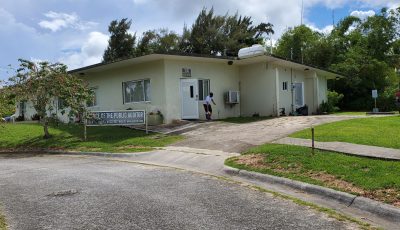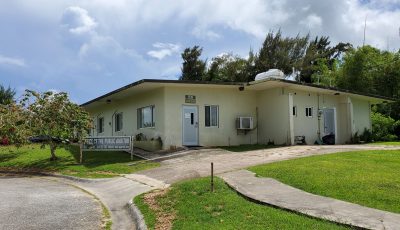OPA says Rev&Tax unable to detect underreported hotel tax
The Office of the Public Auditor has found that the Division of Revenue and Taxation does not have procedures in place to effectively detect underreported hotel occupancy tax, or HOT.
Public Auditor Michael Pai informed Finance Secretary David Atalig last Sept. 2 of this finding, saying OPA did the audit to determine if Rev&Tax has adequate procedures to detect underreported HOT and unlicensed businesses that should pay the HOT.
Pai said any further delay in bringing all operators, including operations conducted on residential properties, into compliance with the HOT law may lead to the loss of potential tax revenues.
Pai pointed out that, with a full-time director at its helm, Rev&Tax is positioned to develop its enforcement capabilities for the uniform enforcement of the HOT law.
In his response last Aug. 26, Finance Secretary David DLG Atalig said that Rev&Tax agreed with all of OPA’s findings and gave an action plans to OPA to address the recommendations.
In the OPA report, Pai said that Rev&Tax has not adopted regulations specific to HOT, does not proactively address non-filings of HOT, does not require the proper reporting of revenues in the business gross revenue tax form, and has limited powers to detect unlicensed operators of short-term lodging facilities, usually called bed-and-breakfast facilities.
Pai said Rev&Tax has not adopted regulations specific to HOT since the tax’s establishment in 1982.
Given the lack of regulations, it is unclear whether or not collecting HOT on charges other than the room rate complied with the HOT law.
He said although authorized to examine books, papers, records, or other data for the purposes of ascertaining the correctness of any tax return, Rev&Tax has not conducted tax audits of operators’ revenue records to verify the credibility of reported HOT.
Pai said other than the U.S. Internal Revenue Manual, which Revenue and Taxation uses as a guide for examining income tax filings, it has not adopted a procedures manual for auditing HOT.
The HOT is imposed upon transient occupants of a room or rooms in a hotel or similar facility on the amount charged or paid for accommodations. Operators are required to remit their monthly collections of HOT from transient occupants and file the monthly HOT form with Rev&Tax.
OPA recommends that Rev&Tax adopt regulations that interpret the HOT law’s use of the term “accommodation” and enable its uniform enforcement of HOT.
OPA also recommends that Rev&Tax adopt a procedures manual for auditing HOT, conduct tax audits of HOT that involve examinations of operator revenue records; and implement procedures using the automation capabilities of the tax system for initiating tax audits of HOT.
OPA’s other recommendations are the following:
– That Rev&Tax implement procedures using the automation capabilities of the tax system to routinely identify non-filings or non-filers of HOT and BGRT, and implement procedures for staff to immediately notify and request operators to file all missing HOT and BGRT filings.
– That Rev&Tax require operators to operate revenues that are subject to both HOT and BGRT under a specific business activity code(s) in the monthly BGRT form; and implement the automation capabilities of the tax system to streamline the verification of revenues reported in HOT and BGRT forms.
– That Rev&Tax review the rules and regulations and laws that impact its enforcement of the HOT law, and implement appropriate procedures for uniformly enforcing business license requirements and the HOT law on all operations of short-term lodging, including operations conducted at private residences.
The HOT tax rate was increased in March 2013 from 10% to 15% under Public Law 18-1. Following that, HOT revenues grew from $12.8 million in fiscal year 2014 to $20 million in fiscal year 2018.
Eighty percent of the HOT collection goes to the Marianas Visitors Authority to promote tourism and attract tourists to the CNMI. The remaining 20% is allocated to fund the operations and obligations of the NMI Retirement Fund and/or 25% pension payments to retirees.
In 2017, OPA initiated a similar audit of Rev&Tax’s processes and procedures for administering and enforcing HOT, but terminated the audit due to Finance’s delay in providing sufficient tax data necessary for completing the audit.



























